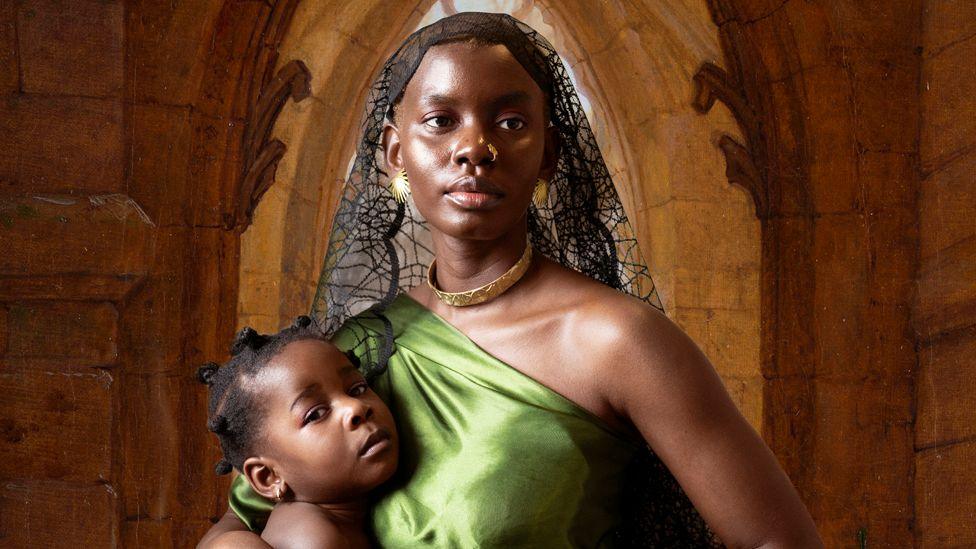'I lost who I was with postnatal depression'
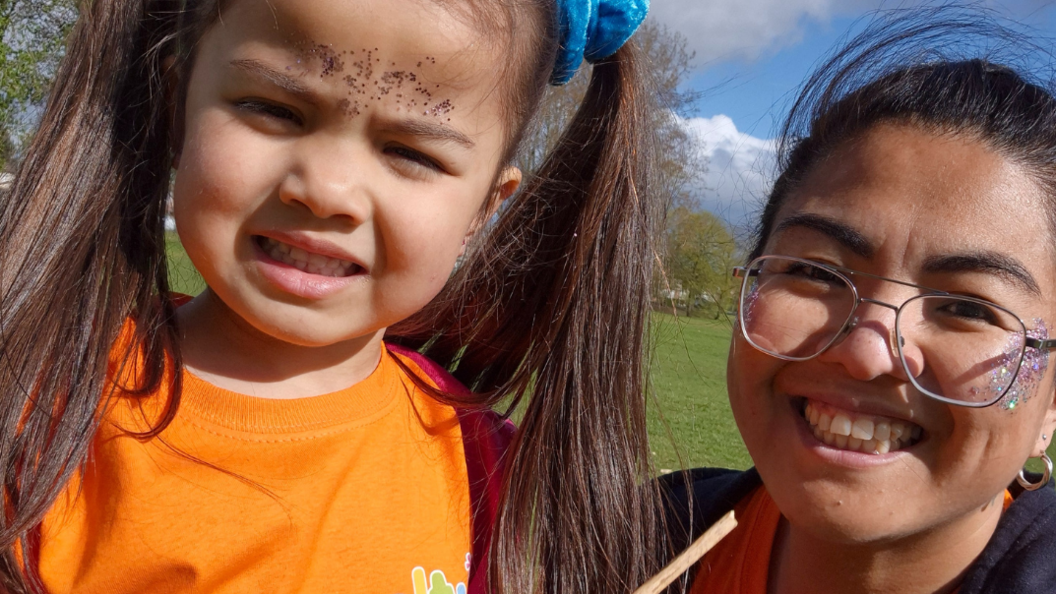
Four years after the birth of her daughter Rachelle is speaking out to help others
- Published
A mother says the traumatic birth of her baby, followed by several miscarriages, left her feeling isolated, depressed and in a "very dark place".
Rachelle, from Pill, near Bristol, was in and out of consciousness during the birth of her daughter Willow four years ago and went on to experience postnatal depression.
The 37-year-old said: "The first couple of months were really, really hard for me. I went through a really dark place. I felt like I'd lost who I was."
She is now speaking about her experience to encourage others to "feel liberated to talk about the challenges of motherhood rather than facing it alone".
Growing up as part of a "big family" in the Philippines, Rachelle said she had always wanted to have "lots and lots of children".
But following the birth of her 11lb (5kg) baby girl, she was left feeling lonely, depressed and "angry at everything and everyone".
"All my habits, all my hobbies, all the things that I used to do, I lost because my entire life revolved around this tiny little being that depended on me," Rachelle said.
"We grin and bear it and say 'we're fine, we're fine, everything's fine', but really [it's], 'no, we're sleep deprived, no, it's getting to me'."
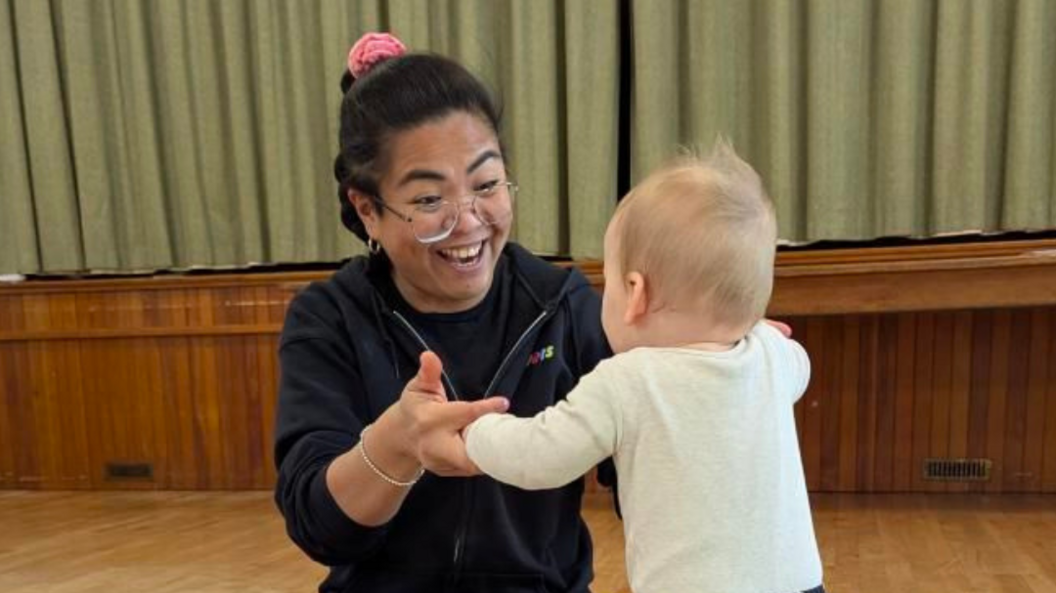
The baby classes Rachelle joined when Willow was a baby helped her find her "mum tribe"
What is postnatal depression?
Postnatal depression is a common problem, affecting more than one in 10 women within a year of giving birth, according to the NHS, external.
Symptoms can include a persistent feeling of sadness, tiredness, a lack of energy, a lack of enjoyment, trouble sleeping or withdrawing from people.
It is important to get help as soon as possible if you think you might be depressed.
Although the cause of postnatal depression is not completely clear, maintaining a healthy lifestyle and "having someone you can talk to and turn to for support" can help prevent it.
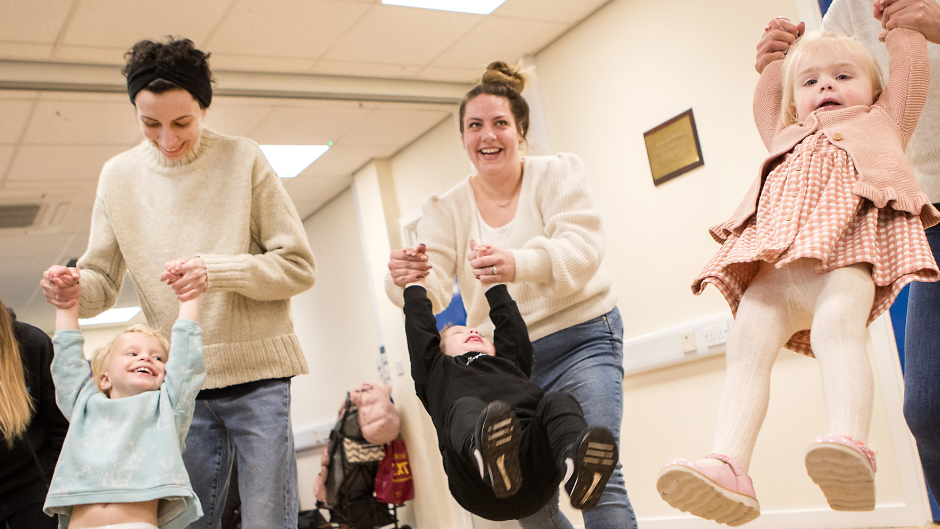
Rachelle now runs her own baby and mum sessions so that other women can find what she found
When Willow was two, the couple decided to try for a second baby, but after two years of trying and several miscarriages they have stopped for the time being.
"There are days when I've had to drag myself out of bed, you experience so much grief but I kept it all to myself," she said.
"No one knew apart from my husband.
"Women don't talk about these things out loud, maybe because it's hard to talk about - guilt and shame plays a lot into it."
Four years on, Rachelle said she was "still working" on getting back to feeling like herself again, but the baby and mum sessions she joined when Willow was a baby helped her find her "mum tribe" and meet some of her best friends.
"It was nice to find other people who related, who I could text at three in the morning going 'I'm having the worst night ever'," she said.
She has now set up her own children's activity franchise covering North Somerset and South West Bristol.
"Just as much as it is for babies to move their little bodies, it makes such a difference for women to make new friends and find that womanly support," she said.
Get in touch
Tell us which stories we should cover in Bristol
Follow BBC Bristol on Facebook, external, X, external and Instagram, external. Send your story ideas to us on email or via WhatsApp on 0800 313 4630.
- Published20 February
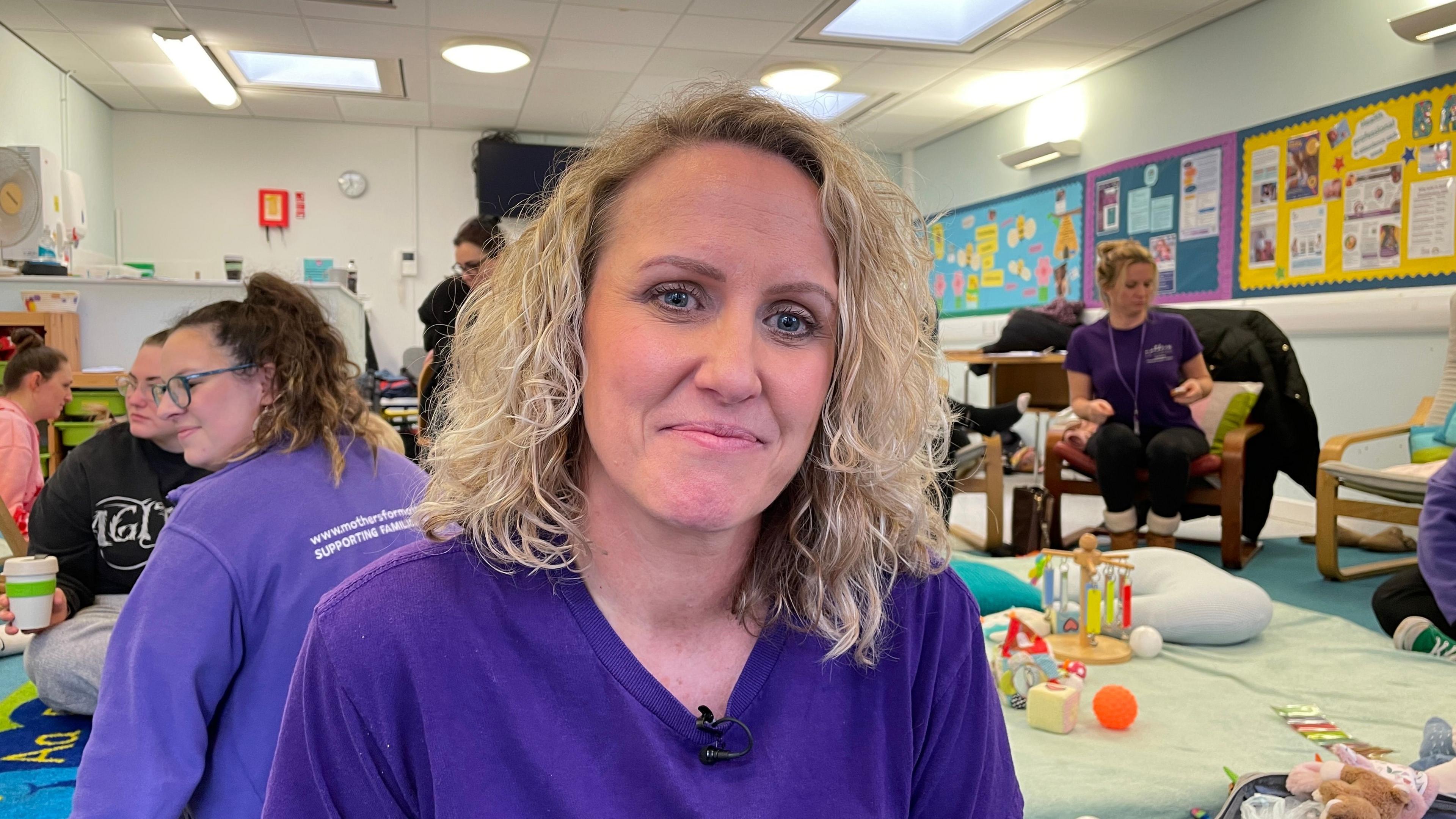
- Published7 February
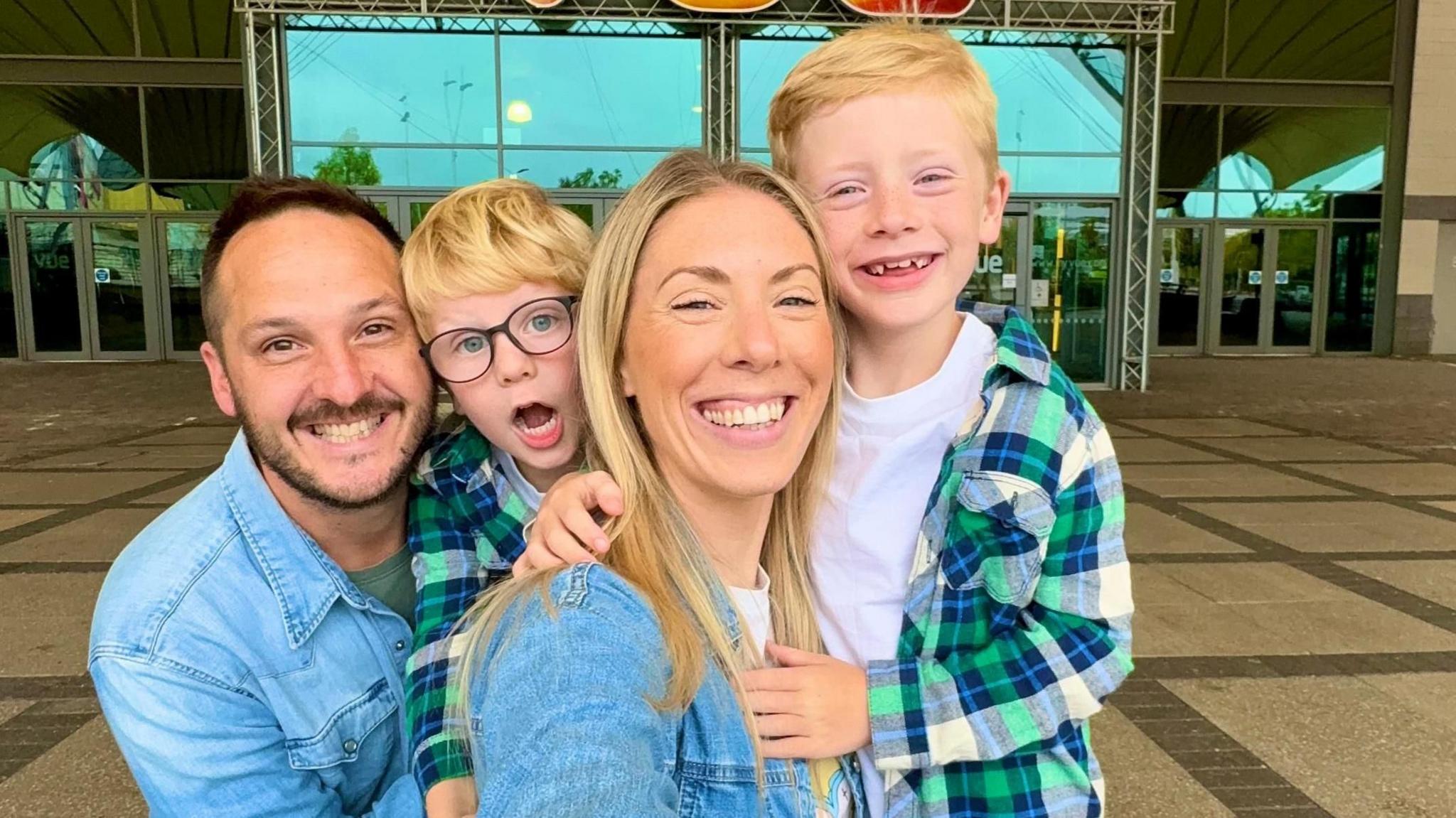
- Published14 December 2024
